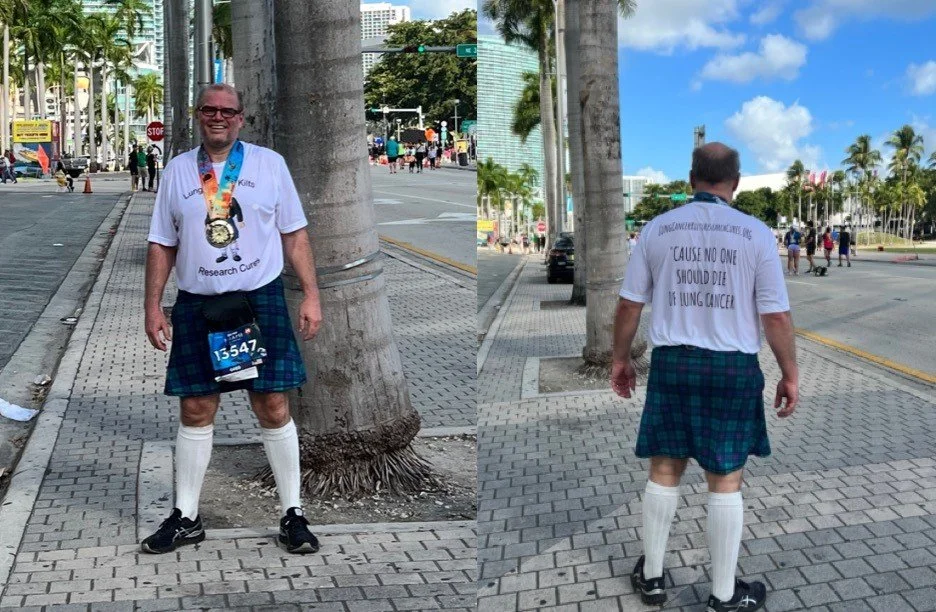Fighting to breathe as you fight lung cancer!
As if getting diagnosed with lung cancer isn’t bad enough, lung cancer is often accompanied by shortness of breath. The reasons are many but there are treatments that help. Being short of breath is one of the worst symptoms. I’ve never experienced it like lung cancer patients have, and although its not the same, I did experience shortness of breath when I ran the Miami half marathon. But I was able to stop and catch my breath at the end of the race. For lung cancer patients, the race doesn’t stop until someone helps them. Its not fair that someone got cancer but its made worse by having to suffer shortness of breath.
Lung cancer can block airways and cause part of the lung to collapse. The lost lung can contribute to a feeling of breathlessness. Blockage of the airways can also lead to pneumonias that require antibiotics. Unless the obstruction is removed, the person is at risk for repeated infections. Radiation, chemotherapy, surgery or bronchoscopy can help relieve the obstruction and allow someone to breath better.
Lung cancer can produce fluid in the space around the lung called the pleura. This is called a pleural effusion and can also cause part of the lung to collapse because there is only so much space inside of the chest. Treatment of the cancer can help but more immediate relief is found by removing the fluid. This can occur by a procedure called a thoracentesis where a catheter can be placed in the pleural space and drain the fluid. If the fluid returns, then the thoracentesis can be repeated or an indwelling pleural catheter can be placed. An indwelling pleural catheter is a catheter that is tunneled under the skin (to prevent infection) and left in the pleural space. The person walks around with this catheter and can drain the fluid themselves at home. This has been a wonderful invention that markedly improves quality of life.
Chemotherapy can cause anemia and immunotherapy can cause thyroid problems. Both can contribute to shortness of breath, but both can be treated. Having cancer increases your risk of developing a blood clot. In your veins, this is called a deep venous thrombosis (DVT) but if it travels to your lung, its called a pulmonary embolus (PE). The PE can cause you to be short of breath but blood thinners can treat this.
Your oncologist (cancer doctor) and pulmonologist (lung doctor) can help you with these problems. But do not forget that there are doctors called palliative care physicians. Palliative care physicians have significant expertise in treating the symptoms that go along with disease. Though they leave the treatment of disease to the other physicians, they markedly improve a patient’s quality of life. If you have been diagnosed with lung cancer, ask to see a palliative care doctor. You will not regret their help when/if you need it.

